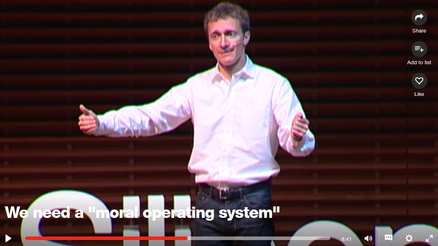How can I tell when I should—or must—blow the whistle on bad behavior at work?
How does workplace culture affect my willingness to point out problems?
What does the Bystander Effect have to do with whistleblowing?
Why should technology creators think about how their inventions could be used?
What does whistleblowing look like?
read: |
Barry Leff, "Whistleblowing: The Requirement to Report Employer Wrongdoing."
This text is a "teshuvah," a legal ruling by rabbis who serve on the Committee of Jewish Law and Standards of the Conservative movement. You will see that a question is raised--"To what extent does an employee have an obligation to report wrongdoing on the part of his or her employer?"--and then the document explores many approaches to this question in Jewish texts of the past. It also refers to more contemporary events for context to help understand the question. You do not need to concern yourself with the specifics of the Jewish texts themselves (e.g., what is the Shulkhan Arukh, who is Rabbi Landau, etc.), although you are welcome to learn about this on your own. For our purposes, just try to follow the argument made in this teshuvah in answer to the original question about reporting employer wrongdoing. Susan Pulliam, “How following orders can harm your career.” CFO.com. October 3, 2003. Jeremy Simon, “Knowing when to blow the whistle.” Texas Enterprise, June 10, 2013. Kirsty Matthewson, “Whistleblowing and bystander apathy: connecting ethics with social responsibility.” CSR Wire, August 7, 2012. Ewen MacAskill, "Edward Snowden: how the spy story of the age leaked out." The Guardian, June 12, 2013. Lorenzo Franceschi-Bicchierai, "The 10 Biggest Revelations from Edward Snowden's Leaks," Mashable, June 5, 2014. |
 Click the picture to hear Damon Horowitz give his talk on moral operating systems.
Click the picture to hear Damon Horowitz give his talk on moral operating systems.
Damon Horowitz, "We need a 'moral operating system.'" TED Talk, May 2011.
